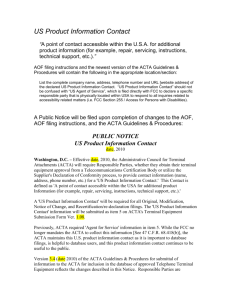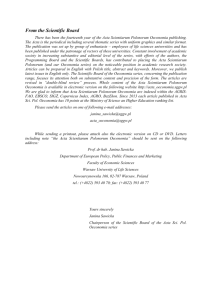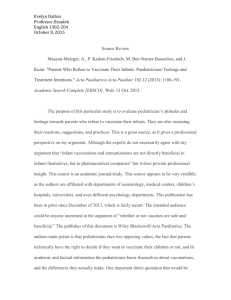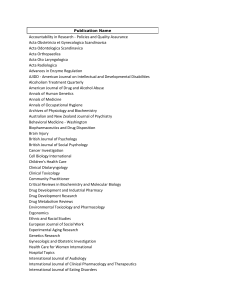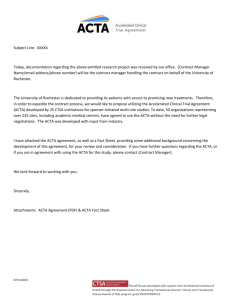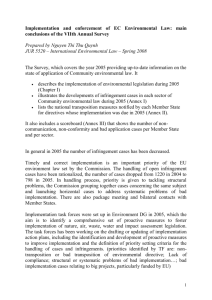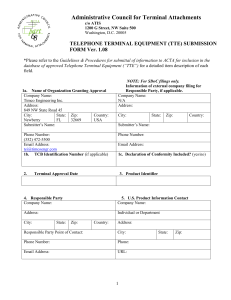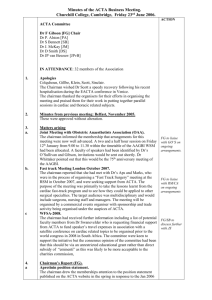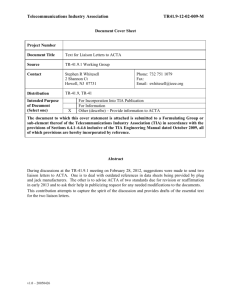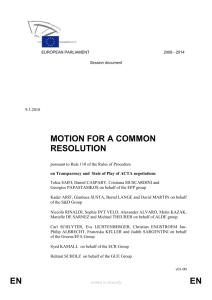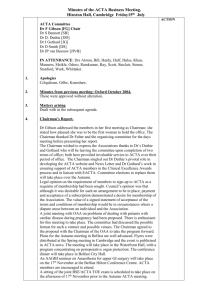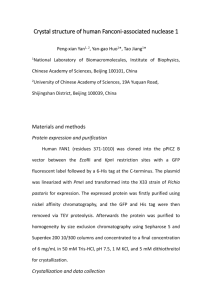The Honorable Gary Locke
advertisement
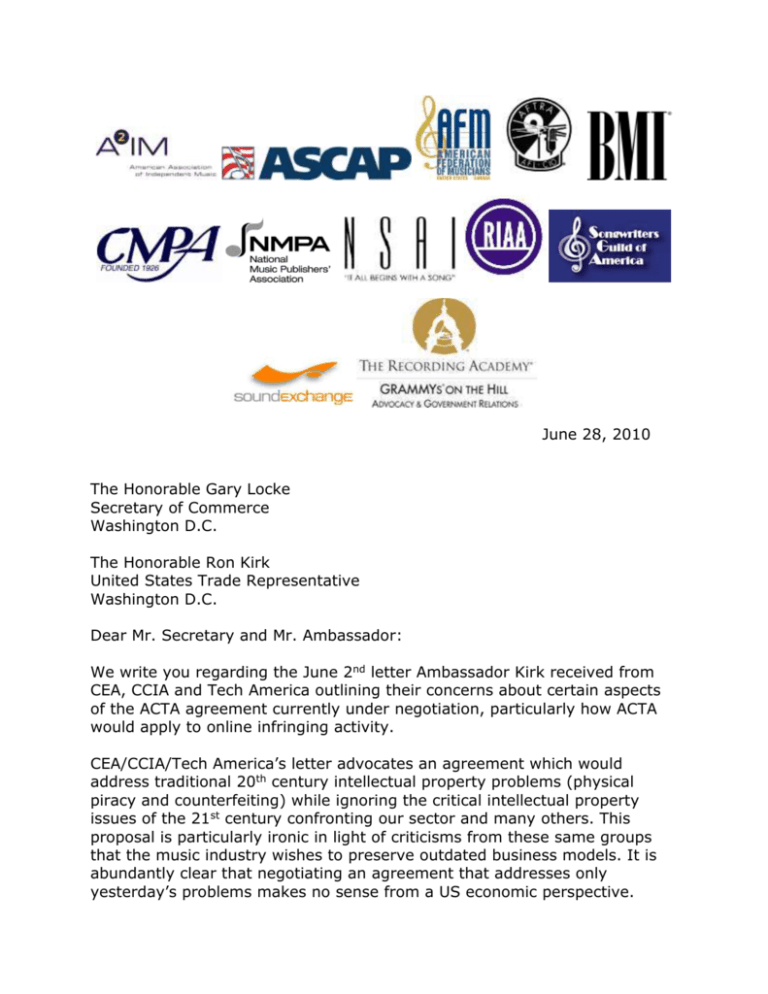
June 28, 2010 The Honorable Gary Locke Secretary of Commerce Washington D.C. The Honorable Ron Kirk United States Trade Representative Washington D.C. Dear Mr. Secretary and Mr. Ambassador: We write you regarding the June 2nd letter Ambassador Kirk received from CEA, CCIA and Tech America outlining their concerns about certain aspects of the ACTA agreement currently under negotiation, particularly how ACTA would apply to online infringing activity. CEA/CCIA/Tech America’s letter advocates an agreement which would address traditional 20th century intellectual property problems (physical piracy and counterfeiting) while ignoring the critical intellectual property issues of the 21st century confronting our sector and many others. This proposal is particularly ironic in light of criticisms from these same groups that the music industry wishes to preserve outdated business models. It is abundantly clear that negotiating an agreement that addresses only yesterday’s problems makes no sense from a US economic perspective. The CEA/CCIA/Tech America letter refers to a particular enforcement issue --secondary liability-- as “highly contentious” and “unresolved,” and thus not worthy of inclusion in the ACTA. However, secondary liability has been a feature of our laws for nearly 100 years. And the 9-0 Supreme Court decision in Grokster preventing the deliberate inducement of infringement is hardly the hallmark of an “unresolved” issue. While the outer parameters of secondary liability may not be “ripe for international agreement,” there is no doubt that certain key features of secondary liability can—and must—be harvested in a 21st century state-of-the-art enforcement agreement. Your ACTA negotiators will obviously need to be careful in how they handle these issues, but to fail to address them, as proposed by CEA/CCIA/TechAmerica, would ignore one of the principal enforcement issues of the online world and would greatly undermine the impact and effectiveness of this Agreement. In addition, CEA/CCIA/Tech America press for the inclusion of exceptions from liability for copyright infringement. Their letter acknowledges that ACTA’s focus is on strengthening penalties against copyright infringement. However, their letter then incorrectly implies that an agreement that addresses stronger penalties against infringement is somehow the same thing as an agreement that negotiates new provisions on the definition of copyright infringement itself. The letter then extends this illogic by suggesting that since ACTA addresses how one defines copyright infringement, ACTA should also provide corresponding provisions for exceptions and limitations—so-called fair use provisions. But the predicate for this argument—that ACTA expands copyright and may confine the ability to maintain or create exceptions and limitations, including through fair use, is simply not borne out by the facts. ACTA proposes no modifications to the underlying copyright law, and affects neither rights nor limitations thereon. If you find it necessary to address exceptions and limitations in the agreement, then the text should state, in clear declarative terms, that nothing in the Agreement either expands or limits the discretion of ACTA parties to maintain or create limitations or exceptions to rights that are consistent with that Party’s obligations under relevant IP conventions. That should give comfort to CEA/CCI/Tech America that fair use and other such limitations on rights are outside the scope of ACTA obligations. It would be a mistake to go further than this by introducing specific obligations with respect to fair use or other limitations and exceptions into the agreement to “balance” enforcement. Fair use is not to be balanced against enforcement— it is to be considered within the relevant framework of rights and limitations thereon. We greatly appreciate the opportunity to work with you and the officials in your agencies on this negotiation and on other matters affecting the protection and enforcement of the intellectual property rights in our nation’s creations and innovations which drive our economy now and will continue to do so in the future. We look forward to the conclusion of an ACTA that indeed does address the critical copyright enforcement issues confronting our sector in the 21st century. At present, most observers estimate that 95% of global online transmissions of music are infringing. To our minds, effecting a change to this intolerable situation is the single most important thing that ACTA could achieve, and expanding the application of laws that promote reasonable online practices is the centerpiece of this goal. On behalf of the undersigned organizations, we wish you luck and fortitude in reaching an agreement that advances key US goals in expanding the effective protection of US intellectual property in global markets. An ACTA that introduces much needed discipline in the online environment would be an exceptionally important first step in realizing the vision articulated in the strategic plan just released by the White House for the enforcement of intellectual property rights. Respectfully submitted, American Association of Independent Music (A2IM) American Society of Composers, Authors and Publishers (ASCAP) American Federation of Musicians (AFM) American Federation of Television and Radio Artists (AFTRA) Broadcast Music, Inc (BMI) Church Music Publishers Association (CMPA) National Music Publishers’ Association (NMPA) National Songwriters Association International (NSAI) Recording Industry Association of America (RIAA) Songwriters’ Guild of America (SGA) SoundExchange The Recording Academy Cc: Senator Senator Senator Senator Max Baucus Charles Grassley Patrick Leahy Orrin Hatch Congressman Congressman Congressman Congressman Congressman Congressman Charlie Rangel Dave Camp John Conyers Lamar Smith Howard Berman Ileana Ros-Lehtinen
